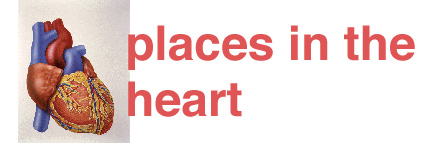Medicine has often taken a skeptical stance when bacteria are blamed for disease. In the 19th century, doctors initially resisted advances made by pioneers such as Joseph Lister and Louis Pasteur. In the 1980s, the medical community was stunned when two Australian researchers declared that Helicobacter pylori, a bacterium found in the stomach lining, was the cause of most ulcers and that a quick course of antibiotics could cure patients (See The Guts of the Matter). At the turn of the century, the theory that bacteria might be wreaking havoc with human hearts has struck some in the medical community as dubious.
Since the mechanics aren't understood, some question forging ahead with an $11-million clinical study. But the payoff is worth the risk, Grayston says. "Why are we doing a clinical trial when we haven't proven the organism causes the disease? We all recommend that people not smoke. This is accepted, but the actual mechanism isn't known. Heart disease is such an important disease that, if we could do something that was safe, it might be worth jumping ahead of the basic science and start saving lives."
All of the study's participants have either had a previous heart attack or evidence of heart disease. For a year, each participant will receive a weekly dose of the antibiotic azithromycin or a placebo. The study is double-blind, meaning that neither the participant nor the doctors know which patients are receiving drugs or placebo. Grayston's team will follow the patients for about four years to monitor for coronary events. These can include hospitalization for heart pain, coronary artery bypass, angioplasty, heart attack or death due to complications of coronary artery disease.
His team includes Pathobiology Professor San-pin Wong, who emigrated to the U.S. in the mid-1960s to study the new organism with Grayston. Pathobiology Professor Cho-chou (Ted) Kuo, with whom Grayston has worked for 30 years, developed the test that differentiates C. pneumoniae from other strains of bacteria. He is now working with Pathobiology Professor Lee Ann Campbell to study possibilities of immunizing against the organism.
Even if the study fails and there is no evidence that patients receiving medication have fewer heart incidents, it doesn't necessarily prove that C. pneumoniae is not part of the cause. Grayston says that the bacterium is notorious for being hard to kill. Perhaps patients need medication before heart disease has progressed very far; perhaps they need treatment for more than a year to reap the benefits. Although azithromycin was chosen because it is known to be effective against C. pneumoniae, it might not be able to track down and wipe out the bacteria as effectively as hoped, Grayston speculates.
Grayston is sometimes asked by physicians and patients alike whether antibiotics are worth a try right now. But Grayston believes nothing now indicates antibiotics should be used to treat heart disease. "There is no justification for treatment of patients with coronary artery disease with antibiotics. The introduction of yet another unproved treatment into practice should be discouraged. The use of antibiotics for unproved reasons can add to the increasing problem of antibiotic resistance," he warns. (see A Plague Upon Our Houses June 1996 Columns).
If research proves that antibiotics can help prevent heart disease, does this mean that those who watch their cholesterol intake, exercise regularly and consume a low-fat diet can finally go for the gusto, eating cheeseburgers apace and reveling in sloth? Hardly. Grayston says diet, exercise and abstaining from tobacco are still key to keeping a heart healthy.
It will be several years before there are any answers to the study. "It could be harmless. Yes, I think it could. But I'm a public health guy and if I can stop a lot of disease, I'll be happy," says Grayston. "Other people can work out the mechanism. No one experiment will give a complete answer, but I'd like to see the answer to this story."
Julie Garner is a free-lance writer in Snohomish, Wash., who writes frequently on the social sciences and health issues.
